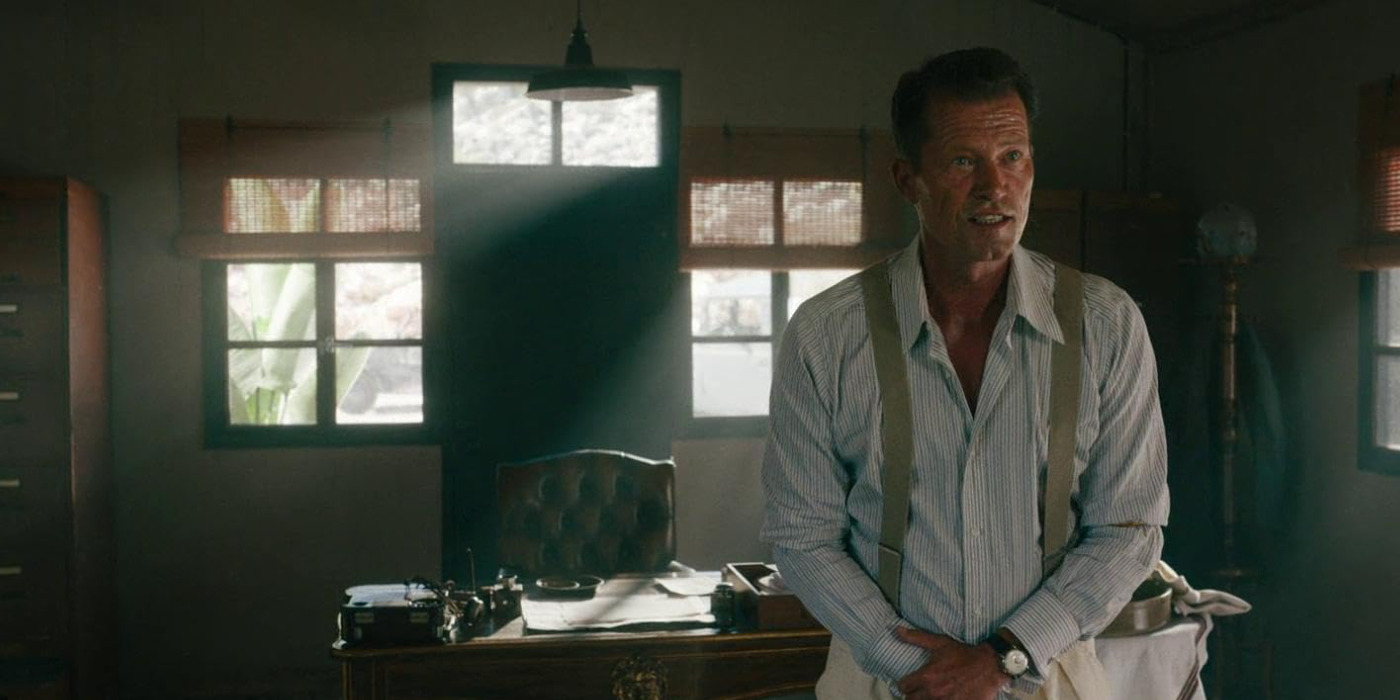In ‘The Ministry of Ungentlemanly Warfare,’ the audience follows an audacious group of British soldiers during World War II who undertake daring covert missions in hopes of delivering a blow to enemy German forces. Hired by Winston Churchill on an unsanctioned mission to sink the vessel Duchessa d’Aosta, Gus March-Phillips assembles a team with just enough daring and rebellion to make the venture possible. Thus, fellow soldiers Anders Lassen, Henry Hayes, Freddy Alvarez, and Geoffrey Appleyard— all with a bone to pick with the Nazis— venture into foreign waters.
Inversely, Heinrich Luhr, the German Commander in charge of the Santa Isabel Harbor in Fernando Po and its crown jewel, Duchessa d’Aosta, becomes the antagonist within the narrative. Therefore, fans must be compelled to wonder if, within this true-story-inspired film, Commander Luhr ends up retaining some origins in reality as well.
Commander Heinrich Luhr: A Fictionalized WWII German Officer
‘The Ministry of Ungentlemanly Warfare’ tinkers with a fair amount of historical accuracy within its dramatized narrative. Still, central protagonists, from Gus March-Phillips and Marjorie Stewart to Henry Hayes and Ian Fleming— most characters sport a basis in a real-life counterpart. However, the same doesn’t hold true for the film’s antagonist, the Nazi Commander Heinrich Luhr. Thus, without any traceable real-life individual behind the character, Luhr becomes a work of fiction penned by Guy Ritchie and his team of screenwriters Paul Tamasy, Eric Johnson, and Arash Amel.

In the film, Luhr’s character remains defined through the military position he holds as the Commander of Duchessa d’Aosta, a crucial supply ship. Since the same vessel is at the center of Gus and his team’s mission, Luhr naturally becomes the most pressing threat. Consequently, Marjorie Stewart and Heron’s characters find their narrative purpose within the story as they travel to Fernando Po to plant distractions for the man. Similar distractions were provided in the real-life Operation Postmaster.
In real life, Captain Specht occupied the same role within the Duchessa d’Aosta vessel as Commander Luhr. Yet, the real Commander wasn’t as instrumental as a player in the incident as depicted in the film. For the same reason, the inspiration behind Luhr’s character departs from Specht, cementing the former as a fictional character. Luhr’s presence within the narrative allows the viewers to have a tangible element to associate the overarching Nazi party with. As a result, every villainous act on his part— shackled prisoners, anti-Semitism, or trigger-happy murders— ends up reflecting and reinforcing the immorality of the Nazis.
Therefore, through Luhr, the narrative receives a compelling villain that viewers can’t help but hate and root against. The same also seamlessly highlights the heroism of the protagonists, affirming the viewers’ faith in Gus and his team even when they decide to go against orders. Furthermore, his more personal dynamic with Marjorie— a Jewish agent whose mission is to seduce and distract the man, enhances the latter’s storyline, infusing it with consistent high-staked tension.
For the same reason, Luhr’s character only adds to the overarching film. Even so, surrounded by real-life-inspired characters, Luhr’s lack of basis in reality remains highlighted. Ultimately, Commander Heinrich Luhr emerges as a fictionalized character with little in common with the real-life Captain Specht and no other similar historical figures to turn to. Thus, his notable involvement in Operation Postmaster remains a fictitious aspect of the film.
Read More: The Ministry of Ungentlemanly Warfare’s True Story, Explained


You must be logged in to post a comment.